Answering the Biggest Questions of Jay Wright’s Retirement
Quinn Burns/Villanovan Photography
The sports business conference was held in the University’s Finneran Pavilion.
April 21, 2022
During the final seconds of Villanova’s 81-65 Final Four loss to Kansas, cameras focused on Collin Gillespie and Jermaine Samuels, standing on the side of the court, arm in arm and in tears. As the two super seniors watched the final seconds of their Villanova careers tick away, little did they know that their coach stood just feet away, watching his time at Villanova come to a close as well.
Villanova head coach Jay Wright announced his retirement on Wednesday night, stepping away after 21 years at Villanova. He led the Wildcats to a 520–197 record, winning two national titles, in 2016 and 2018, and advancing to the Final Four in 2009 and 2022 as well.
His retirement came as a shock, both to the Villanova community and the basketball world as a whole. Wright is just 60 years old, and after the retirement of Duke’s Mike Krzyzewski, 75, Wright was expected by many to take the mantle as college basketball’s top coach, but instead, Wright is following Krzyzewski into retirement.
In his 21 years at the helm, Wright has established Villanova as a pillar of stability, consistently good and avoiding much of the chaos that has enveloped college basketball. In an era of college basketball defined by the transfer portal, where teams can be built and destroyed within hours, Wright was old-fashioned, recruiting players and keeping them for years, developing them into his system of “Villanova basketball.”
With the unexpected retirement, that stability is threatened. Villanova quickly announced that Fordham’s Kyle Neptune, a Villanova assistant from 2013-2021, would be taking the reins from Wright, but major questions about the program’s current state and its future remain.
Why did Wright retire?
This is a question we don’t have a precise answer for yet, we’ll learn more at Thursday’s Awards ceremony and in Friday’s press conference. Initial reports from The Athletic said that Wright is hoping to spend more time with his wife, Patty, and their three kids, but the whole truth is likely not that simple.
Alternatively, it could also be as simple as Wright is suffering from burnout. Wright has been the head coach at Villanova for 21 years, and this season, Wright has been coaching non-stop, jumping straight from coaching in the Olympics in Tokyo into the rigors of preseason and a long college basketball season. This is absolutely a surprise, as Wright is still relatively young and shows no signs of decline, but with NIL deals and the transfer portal, college basketball has changed drastically over the past couple seasons. Although Wright is careful with what he says, he has expressed disdain for the current state of NIL deals, saying that it will be good for college basketball and basketball as a whole, but also saying that the NCAA is behind and it will take three to four years to completely get it under control. At the end of the day, it’s entirely possible that Wright didn’t want to adapt, or even that he no longer thinks he’s the best man for the job.
Regardless of why he retired, the news came as a major surprise. Throughout the tournament run, it never looked like Wright was close to retiring. In New Orleans, Wright was asked about the topic in regards to Krzyzewski’s retirement, yet the question had the caveat of “I know you’re nowhere near that.” In what proved to be his second to last press conference, Wright’s response was interesting in hindsight.
“I would be lying if I tell you I don’t [think about retirement] — you think about it after each year, you think about where your life is, what are you going to do,” Wright said. “It’s difficult to think about.
“I think about it because there’s going to have to be a time when it’s time for the next coach of Villanova. There’s going to have to be that time. You have to pick that time. I think Mike did it extremely intelligently. And it’s got to be really difficult.”
Less than three weeks later, that time has already come for Villanova.
Who is Kyle Neptune?
Neptune is 37, two years younger than Wright was when he assumed the position as Villanova head coach, yet he is not Wright, nor does he have the head coaching experience at that age that Wright had.
Neptune is a rising star in basketball circles, named to ESPN’s “40 under 40” list in May 2020. A Brooklyn native, Neptune played at Lehigh from 2004-2007, joining Villanova’s staff under Wright as an administrative intern/video coordinator from 2008-2010. In 2010, he was hired as an assistant coach at Niagara, where he coached for three seasons, serving as an assistant on a 19-14 Niagara squad that earned a trip to the NIT. In 2013, Niagara head coach Joe Mihalich was hired as head coach at Hofstra, and Neptune followed him to the Pride before accepting an offer to join Wright’s staff at Villanova.
During Neptune’s eight years with the Wildcats, Villanova averaged 29 wins per season, winning four Big East tournament titles and two National Championships. Neptune was named head coach at Fordham on March 30, 2021, and in his only season coaching the Rams, he took a squad that was expected to finish last in the Atlantic-10 to an eighth placed finish in conference and a 16-16 overall record. The Rams knocked off George Mason in the A-10 tournament before falling to eventual runners-up Davidson in the quarterfinals.
“When looking for a successor, we wanted a candidate who could navigate the changing landscape of collegiate athletics and keep Villanova in a position of strength—now and in the future,” Villanova Director of Athletics Mark Jackson said in a statement announcing the decision. “After meeting with several exceptional candidates, we found all those attributes and more in Kyle Neptune. Kyle quickly stood out for his basketball knowledge, recruiting savvy and natural ability to connect with student-athletes and coaches.”
Like Krzyzewski and his successor at Duke, Jon Scheyer, Wright and Villanova chose to go with an in-house replacement. Neptune will be expected to continue the traditions of Villanova basketball, continuing the family atmosphere and typical Villanova styles of “Attitude” and “Villanova basketball.” However, attempting to follow in the footsteps of a Hall of Famer will be no small task for someone with little head coaching experience.
Why didn’t Wright have a retirement tour?
Two legends – Krzyzewski and Wright – retiring in the same year, yet in dramatically different ways, has shown the differences between the two coaches. Although Krzyzewski says that the retirement tour was only for recruiting and the continuity of the program, at the end of the day he enjoyed the attention, even though he said in his final press conference that “It’s not about me.”
Wright, meanwhile, talks about how he tells his players that playing “Villanova basketball” is “playing for something bigger than themselves,” and his retirement mostly showed that. Wright didn’t drag out the decision, and although his decision leaked before he could tell his players, it leaked by a matter of an hour, not days. By leaving the retirement until after the season and not referencing it during the tournament, Wright ensured that the focus was on his players and his program instead of on him, just as Villanova Basketball demanded it be.
Off of that, what does this mean for “Villanova basketball”?
By hiring in-house, Villanova looks to be continuing its program in its current trajectory instead of looking to make drastic changes. Neptune is not Wright – he will not claim to be, and anyone that holds Neptune to Wright’s lofty standards in Neptune’s first season is setting unattainable goals for the new hire.
However, the culture of Villanova basketball remains. Villanova is built off of certain principles, which are drilled into Villanova players from their recruitment until their last days with the program. By the end of his fifth season, Gillespie was the prototypical Villanova player, almost incapable of answering a question without going referencing the Villanova basketball cliches of “40 minutes of Villanova basketball,” “humble and hungry,” “Attitude,” “catch to shoot” and “growth mindset,” among others. Although these principles may change slightly with a new head coach, by hiring someone who has been ingrained in Villanova culture like Neptune, it shows that much of the same “Villanova basketball” will continue.
There is one shift from Wright to Neptune that Villanova fans may appreciate — during this season, unlike Wright, Neptune wore suits on the sideline.
How will this affect the roster for next year?
2022-2023 was already expected to be a transition year for Villanova, and with the departure of Wright, that transition became even tougher. Arguably the three most important pieces of “Villanova basketball” – Wright, Gillespie and Samuels – will not return, so the style of the team becomes completely different.
The idea that Villanova basketball is bigger than one person will be tested, and Villanova fans will learn whether players came to Villanova to play “Villanova basketball” or to play under Wright. Most of the players at Villanova were recruited in some part or played under Neptune, so potentially apart from the 2022 recruiting class, Neptune won’t have to meet new faces.
The biggest decisions come from seniors Brandon Slater and Caleb Daniels. Both can return for extra seasons of eligibility, yet neither have made official announcements about whether they will return. After junior guard Justin Moore tore his Achilles in the Elite Eight, likely sidelining him until the middle of the season next year, Daniels was the one to step into the starting lineup. If he chooses to return, Daniels will be the main man in the Villanova offense, at least until Moore returns. For that reason, Daniels is expected to return.
Similarly, Slater will also have a bigger role in the Villanova offense. Slater got off to a blistering start this year, scoring 17, 10, and 23 in his first three games, yet fizzled out as he dealt with numerous injuries throughout the season, finishing with an average of just 8.5 points per game. However, with full health and without Moore, Gillespie and Samuels, Slater will have ample opportunities to have success next season, even without Wright. Slater is also expected to return.
However, the 2022 recruiting class of Cam Whitmore, Mark Armstrong and Brendan Hausen will likely take a hit. Per 247 Sports, Villanova has the 16th best recruiting class in the nation in 2022, yet when a coach is fired or retires, many recruits reopen their recruitment. As of Thursday morning, Armstrong retweeted Wright’s retirement note and Hausen reposted the story on Instagram, changed his profile photo from himself in a Villanova uniform to a blank screen, and erased any mention of Villanova basketball from his bio. However, his posts announcing his commitment and his signing day are still up.
Whitmore, the crown jewel of the recruiting class and a top-10 recruit per Rivals, has removed any mention of Villanova and unfollowed all Villanova accounts on Twitter. His Instagram still includes “@novambb” in his bio, and he posted “Talk Soon” on his Instagram story, but quickly took the story down. Whitmore was drawn to Villanova because of its location and its family-like atmosphere, yet with so many offers, Whitmore will hear from plenty of schools even before he formally reopens his recruitment. Whitmore’s final three included Illinois and North Carolina, and Whitmore may remain committed because of his desire to remain close to his home of Maryland. However, with so many suitors for his services, Wright’s retirement will likely cost the Wildcats a highly-touted recruit.
Armstrong was the first of the 2022 Class to commit to the Wildcats, but in an interview with VUHoops.com, he cited the connection he felt with Wright as reason for his commitment. As a Jersey City native, Armstrong is very familiar with Villanova, but because Wright played a major role in his decision, it’s likely that Armstrong chooses to look elsewhere.
Although Hausen was the only member of the class to immediately change his social media presence after Wright’s retirement was announced, he may also be the most likely to stay. Hausen was recruited while Wright was coaching in Tokyo, so Hausen built a relationship with associate head coach George Halcovage, per VUHoops.com. Although Hausen was recruited by several big programs, Villanova was his best offer, and in an interview with VUHoops.com, Hausen said that Villanova fans could expect him to be “the definition of a Villanova Wildcat.” However, nothing can be taken for granted, especially after such major news as Wright’s retirement.
Neptune will likely face the re-recruitment of several players, not only including the 2022 recruiting class. Several Villanova players will need to be pitched on their role on the roster in 2022-2023 and beyond, even if Neptune does plan on keeping Wright’s roles and systems in place.
Is this the end of the golden era of Villanova basketball?
Yes and no. Wright’s time in charge of Villanova is the most successful era in Villanova basketball history, with four Final Fours and two National Championships, yet his work in establishing a culture means that the blueprints for continued success are in place. Neptune won’t have to reinvent the wheel, he instead has to maintain the program’s trajectory. However, if he tries to be Jay Wright, he stands no chance of success.
Wright’s recruitment policy included finding players who are willing to put the team’s needs before their own, and because of that, Villanova has had far less transfers out than other programs, allowing it to develop talent and continue reloading from within. Because of this, a mass exodus that would sink the program is highly unlikely, and all eligible players from this year’s roster are expected to return. If the players continue passing on the traditions of Villanova basketball just as the players passed it on to them, regardless of the head coach in charge, then Villanova will continue to be the powerhouse program that Wright built it into.
So yes, this is the end of the Wright Era and the beginning of the Neptune Era. And yes, Wright’s reign has absolutely been the golden era of Villanova basketball. But the principles of Villanova basketball run deeper than just Wright. Wright has built a program on a foundation that will last, and because of this, the golden era of Villanova basketball can continue, even without Wright in charge.

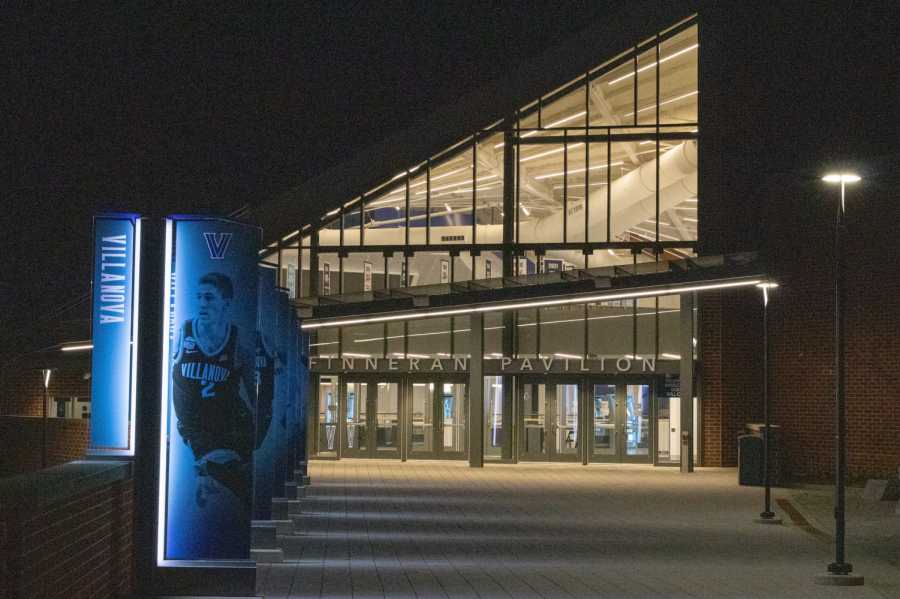
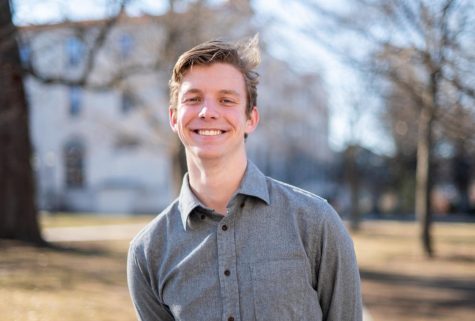

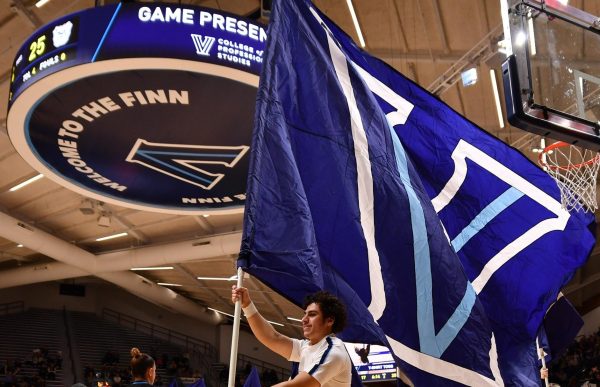
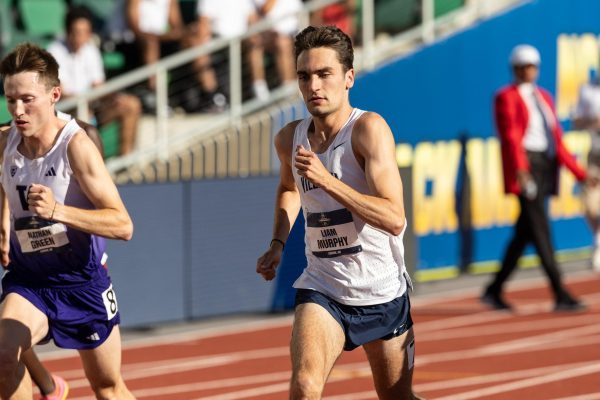
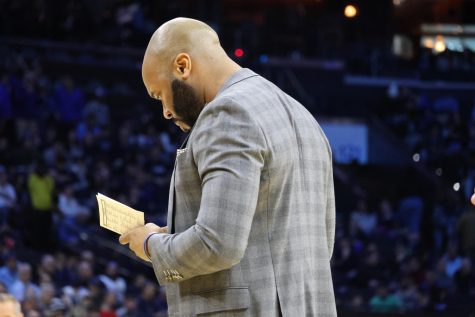
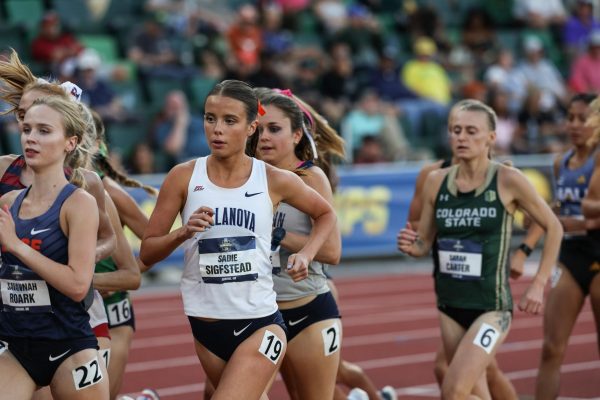
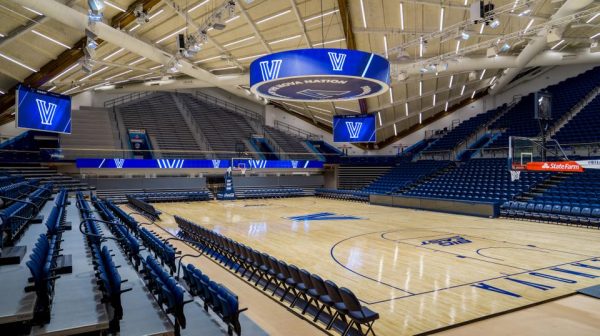
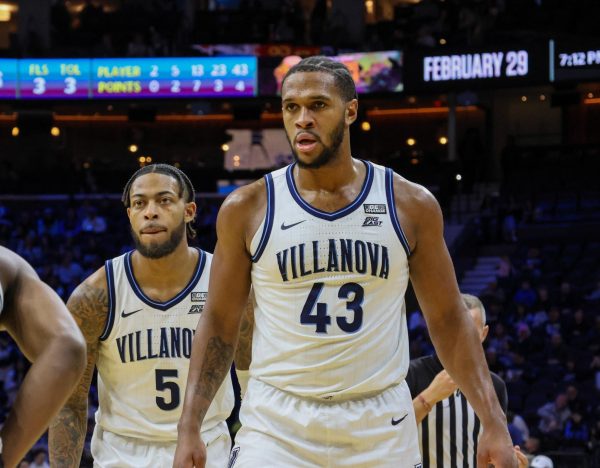
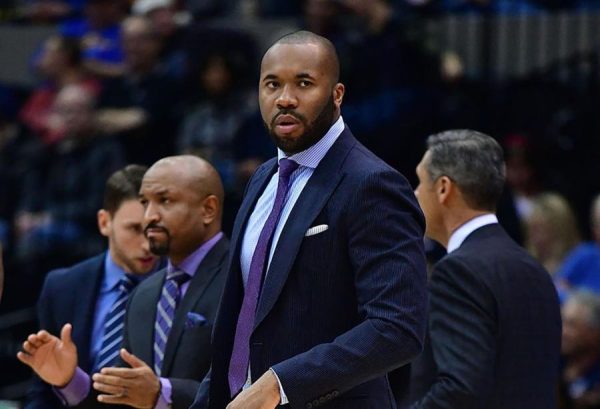
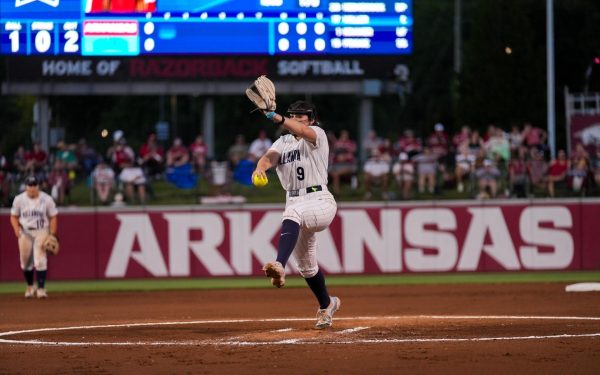
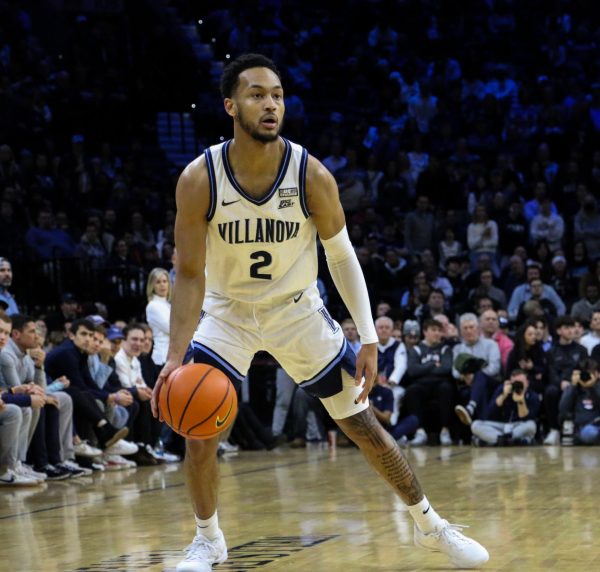
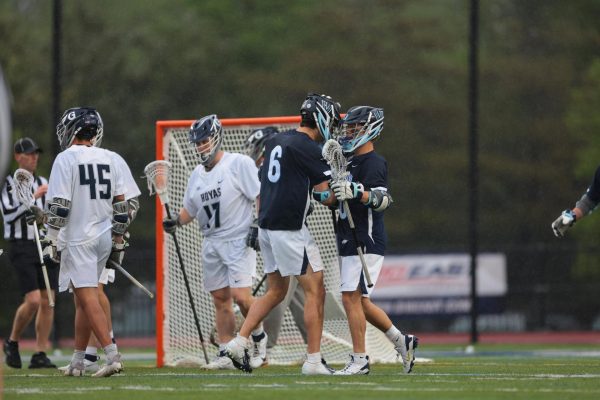

Rich • Apr 22, 2022 at 2:50 pm
Your comment about Armstrong leaving didn’t age well. He confirmed today he’s staying. And while there has been no public announcement from Cam, his attendance at both the awards ceremony and today’s press conference is a very positive signal that he’s likely to come to the Main Line.
Bing Bong • Apr 22, 2022 at 1:45 pm
You really think Whitmore and Armstrong would attend the annual awards ceremony and Neptune presser if they weren’t staying committed to Nova? lol foolery
Colin Beazley • Apr 22, 2022 at 5:32 pm
I wrote this the morning before the ceremony. I’m feeling much more optimistic about both after seeing them in attendance than when I initially wrote this.
Dan McCuen • Apr 23, 2022 at 2:24 pm
Did you introduce yourself and talk to ‘em ?
Colin Beazley • Apr 23, 2022 at 9:41 pm
I did not, but wish I could have. The Sports Info team was clear that there would be no formal or informal media availability.